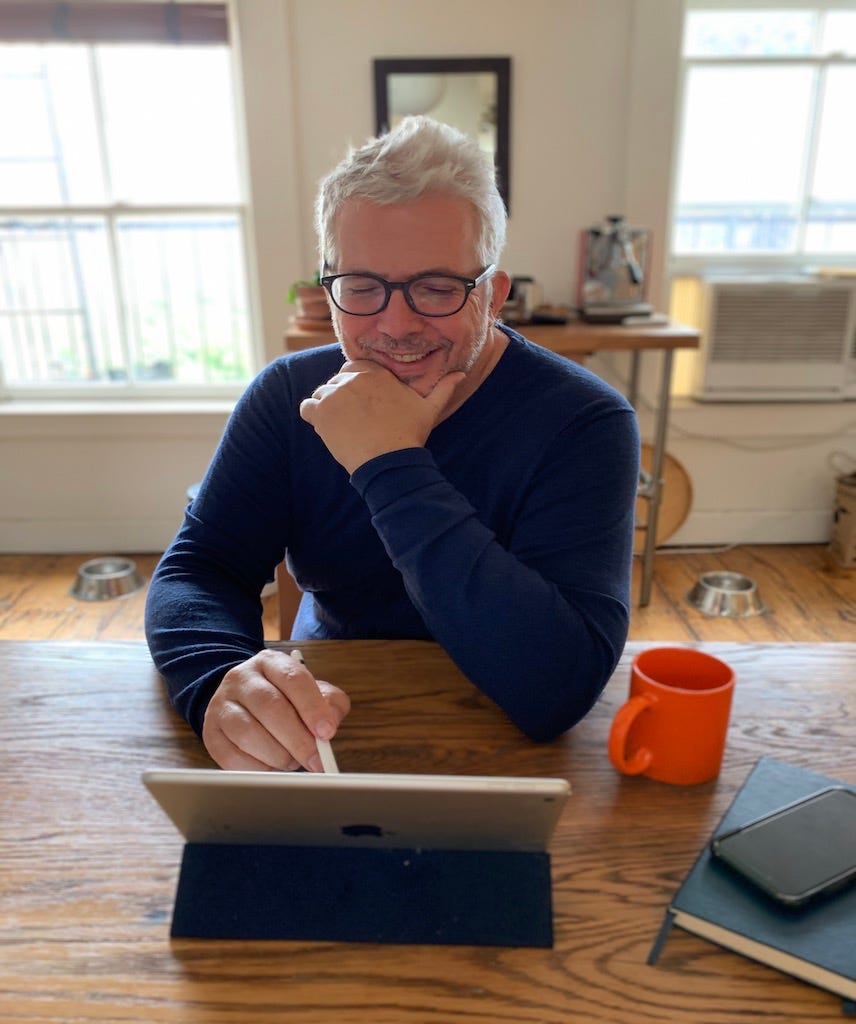Heartache is age agnostic
(no. 6) Yes, breaking up really does break your body, old or young, by Stephen P. Williams
First, a detour: Apparently, our cognitive abilities peak at age 24, and decline 15% per decade thereafter. I’m not sure I believe this, as that would mean I’m 75 percent less capable than I was at 24, when I thought Camel non filter cigarettes were cool.

A real human heart in a jar. Photo by camilo jimenez on Unsplash
We often think of heartbreak as an issue of the young, who dramatize their suffering because they lack the inner strength that comes with time. In one respect, this is true, as younger people tend not to be able to regulate their responses to trauma induced by social isolation and heartache from a breakup. Their reactions of anger, anxiety, sadness and shame are often more pronounced than in older people. Yet, I can attest that heartache, which got its name from the fact that your heart -- and other parts of your body -- actually hurts, is age agonistic.
During my last big breakup, when I was in my early 50s, my nerves, heart and digestion suffered for a full year. This led me to theorize that in a breakup, the two people are actually pulling molecules apart that had been united by the relationship. For me, the feeling was mysteriously physical, as though my emotions and mind had nothing to say about it. I’ve found no science to back this up and surely never will. Yet even though I knew it was right for us to breakup, the parting felt like pulling two pieces of velcro apart, for about 8 months.
A University of Michigan study showed that physical pain, such as banging your elbow, lights up the same regions of the brain as emotional pain, such as looking at a photograph of the person who just broke up with you. This suggests that the pain of a breakup really does hurt, physically.
A Columbia University study found similar results, after scanning the brains of people who were undergoing social rejection, including breakups. They compared the results to previously conducted MRIs of brain responses to physical pain, emotion and other factors. They found that social isolation lit up the areas of the brain that feel physical pain, but not the areas associated with emotion. This further proves that heartache has significance beyond emotions.
“These findings are consistent with the idea that the experience of social rejection, or social loss more generally, may represent a distinct emotional experience that is uniquely associated with physical pain,” said the study’s lead author, social psychologist Ethan Kross. The researchers suggest this is why pain and hurt are used by cultures all over the world to describe the feeling of heartbreak.
While heartache can strike as easily at 21 as it does at 101, there’s a peculiar type of broken heart that tends to only strike postmenopausal women. This dangerous illness goes by several names, including broken heart syndrome, stress-induced cardiomyopathy and takotsubo cardiomyopathy. (Tako tsubo are octopus traps that are said to resemble hearts.)

Tako tsubo are clay pots that lure octopuses into their dark interior. They are also broken hearts.
The illness is generally triggered by a death, divorce or other breakup, or a betrayal. It can also happen when good news, such as finding a winning lotto ticket, is intense. The main symptom is sudden, powerful chest pain. ER physicians often think it’s a heart attack, until they realize the heart has no blocked arteries. Instead, part of the heart enlarges, pumping badly, while the rest of the heart picks up the slack. It’s a serious problem, that can lead to heart muscle failure. Fortunately, it’s treatable, and rarely fatal. The lesson of all this is to take your heartache seriously. It’s real.
more info:
the physical effects of trauma
like a banged elbow
the impact of trauma on your heart
how the brain reacts to breakup and social isolation
octopuses and heartbreak
I recommend that you listen to Al Green (who suffered heartache, for sure) as you recover from your next breakup.
Other news for youths, olds and neithers
Brain Broadcast
New technology allows a person (who has had a stroke, or is paralyzed) to write letters on a screen with their mind.
Hospitalization While Black
This is unacceptable, yet our culture — which we are all part of — accepts it. African Americans of all ages experience biased treatment in US hospitals.
This is the 70s
The writer, Catherine Trexier, on younger lovers, older friends, the world of her 70s and more, in a thoughtful, entertaining essay.
Sage Advice from Succeeding Generations
The following video is very entertaining, and wise.
Get in Touch
Send thoughts, ideas and shade to stephen@stephenpwilliams.com


